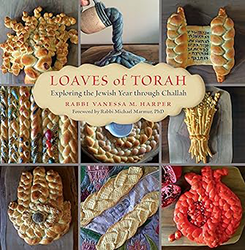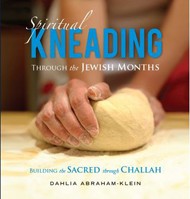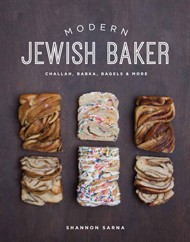The folk tale is a time-honored vehicle for transmitting ethics and values to a new generation of readers and listeners, as well as entertaining them with stories redolent of times gone by. When the tales are told with a deft touch and are neither didactic nor stilted, the lessons learned may be retained for a lifetime.
The Peddler and the Baker tells the story of an honest, simple-hearted peddler who wakes up each morning sniffing the delectable aroma of freshly-baked bread wafting through the town. Ah, such bliss! By simply breathing, the peddler is immersed in a sensually delightful experience which is evocative of comfortable homes, plentiful sustenance, and warmth. The town baker, though, believes the heavenly aroma belongs to him. After all, wasn’t it his labor and his ingredients which resulted in the bread being baked at all? He has devised a clever scam, informing the peddler he needs to pay a fee for inhaling the precious scent. The peddler is a poor man and his hard work covers his basic needs, but he has no extra money to pay for delicious smells. Finally, with much effort, he manages to accumulate a few extra coins to settle his debt with the baker but he knows he won’t be able to continue to pay the baker for the aroma of the bread he bakes every day.
The rabbi is called in to mediate the dispute. The baker makes his case convincingly and the discouraged peddler hands the rabbi his precious bag of hard-earned coins. The satisfied baker reaches out to take the bag, but the rabbi stops him, giving the bag a vigorous shake so all can hear the musical clink of the coins inside. The rabbi comments on the pleasant jingle and reminds all the parties that sound is as valuable a commodity as smell. The sound produced by the jingling of the coins is the perfect payment for the aroma of baking bread. The peddler can take his hard-earned money home again.
The lessons taught by this simple, well-told tale are simultaneously self-evident and sophisticated. The reader’s primary take-away is that greed doesn’t pay, but there are many other ethical issues embedded in the simple prose: honesty, the value of hard work, the benefits of asking learned advice, and, importantly, the joy of a creative approach to a problem.
The rabbi is not caricatured in this charming story and, along with the humor, a sense of respect shines through.
The illustration is just as spectacular as the witty text, using appealing muted tones, facial expression, and body language. The artist’s rendition of a bustling, productive, yet generally serene town is superb. Two small children, peeking out over the stairway wall, and bookcases crammed with clearly beloved and well-used books are examples of the artist’s attention to detail. The illustrations partner with the winsome text to both entertain and educate.
Appended is an easy-to-make challah recipe so readers can create the enticing aroma (and taste) of fresh bread in their own homes.
Michal Hoschander Malen is the editor of Jewish Book Council’s young adult and children’s book reviews. A former librarian, she has lectured on topics relating to literacy, run book clubs, and loves to read aloud to her grandchildren.





